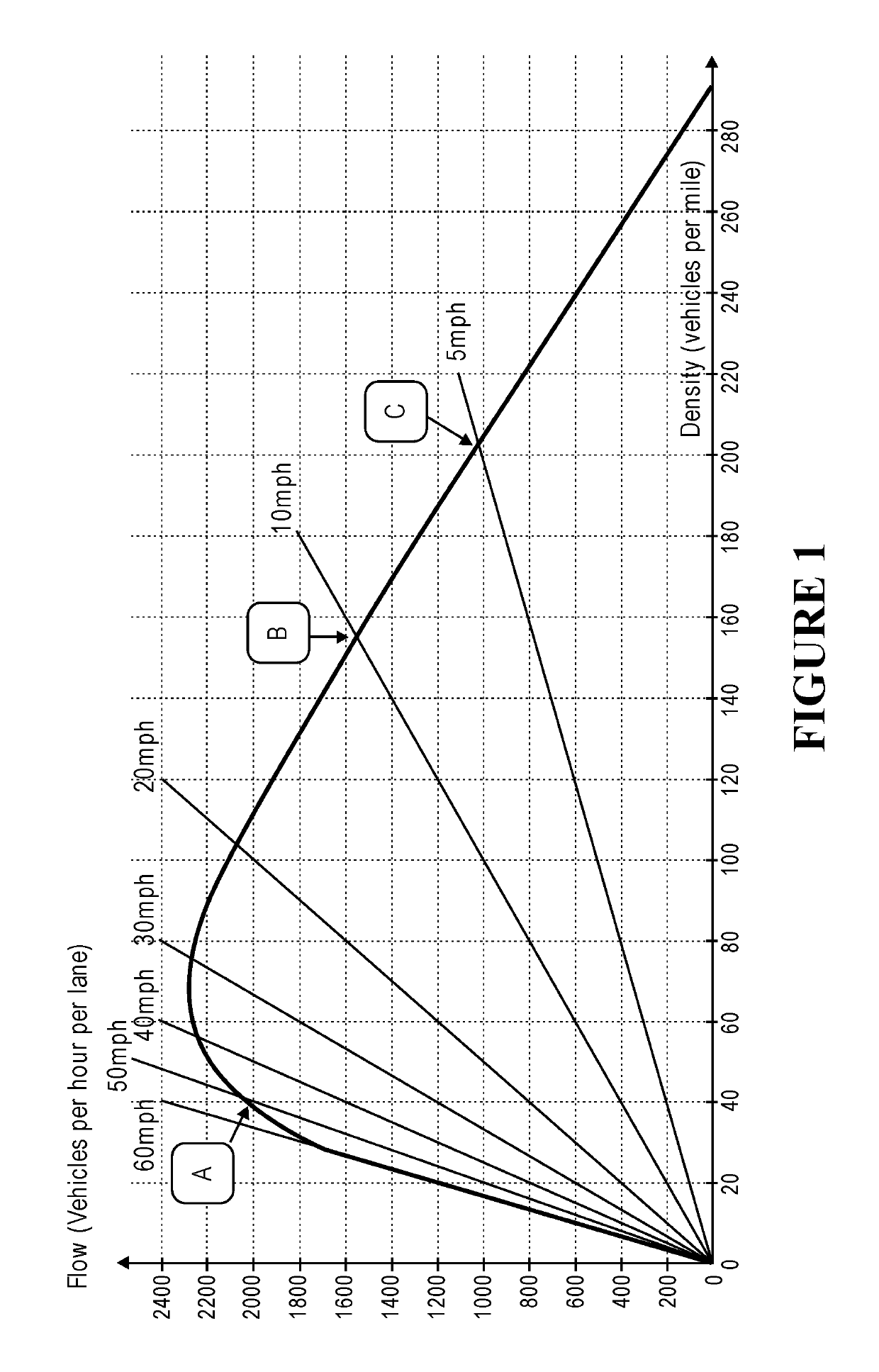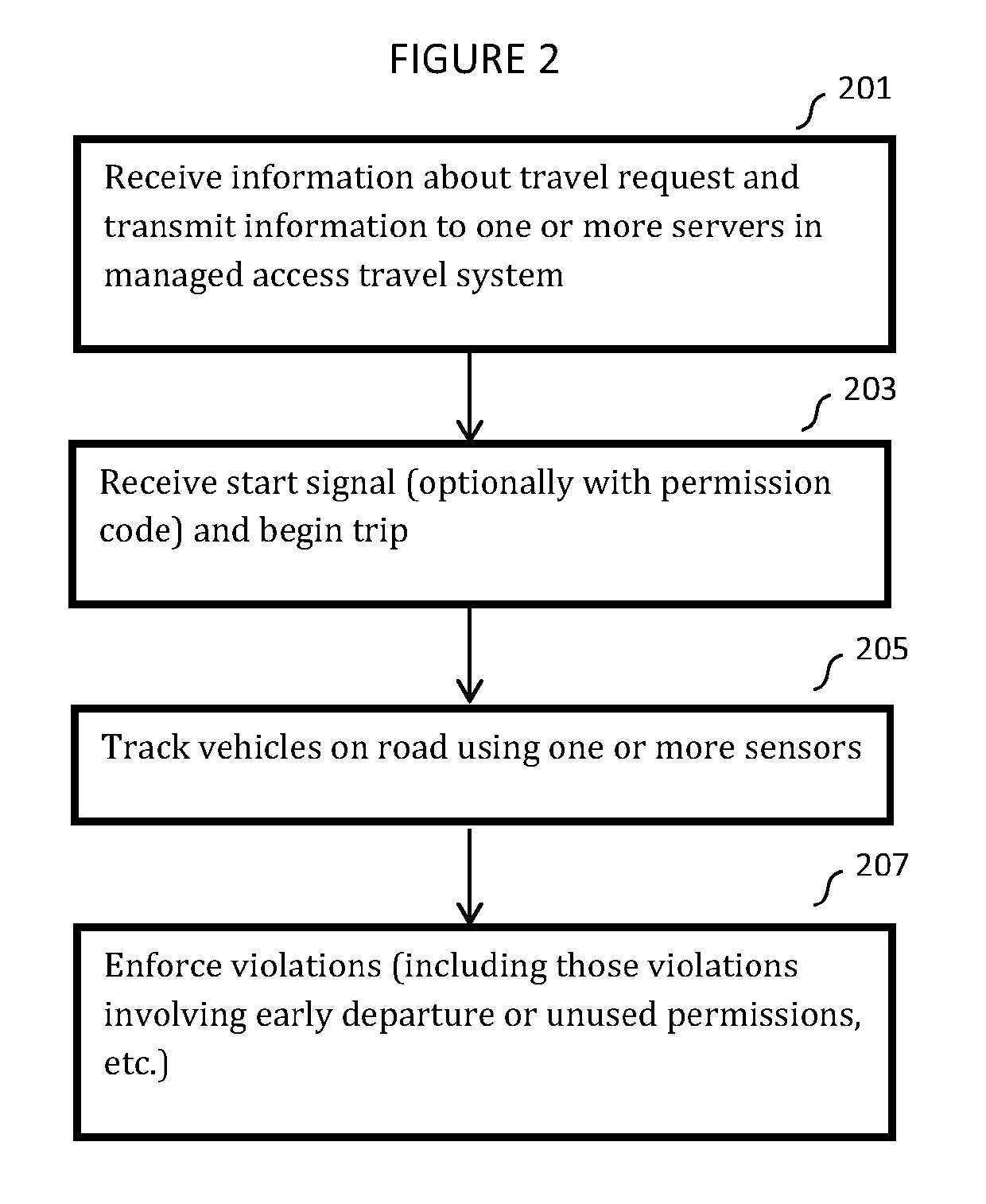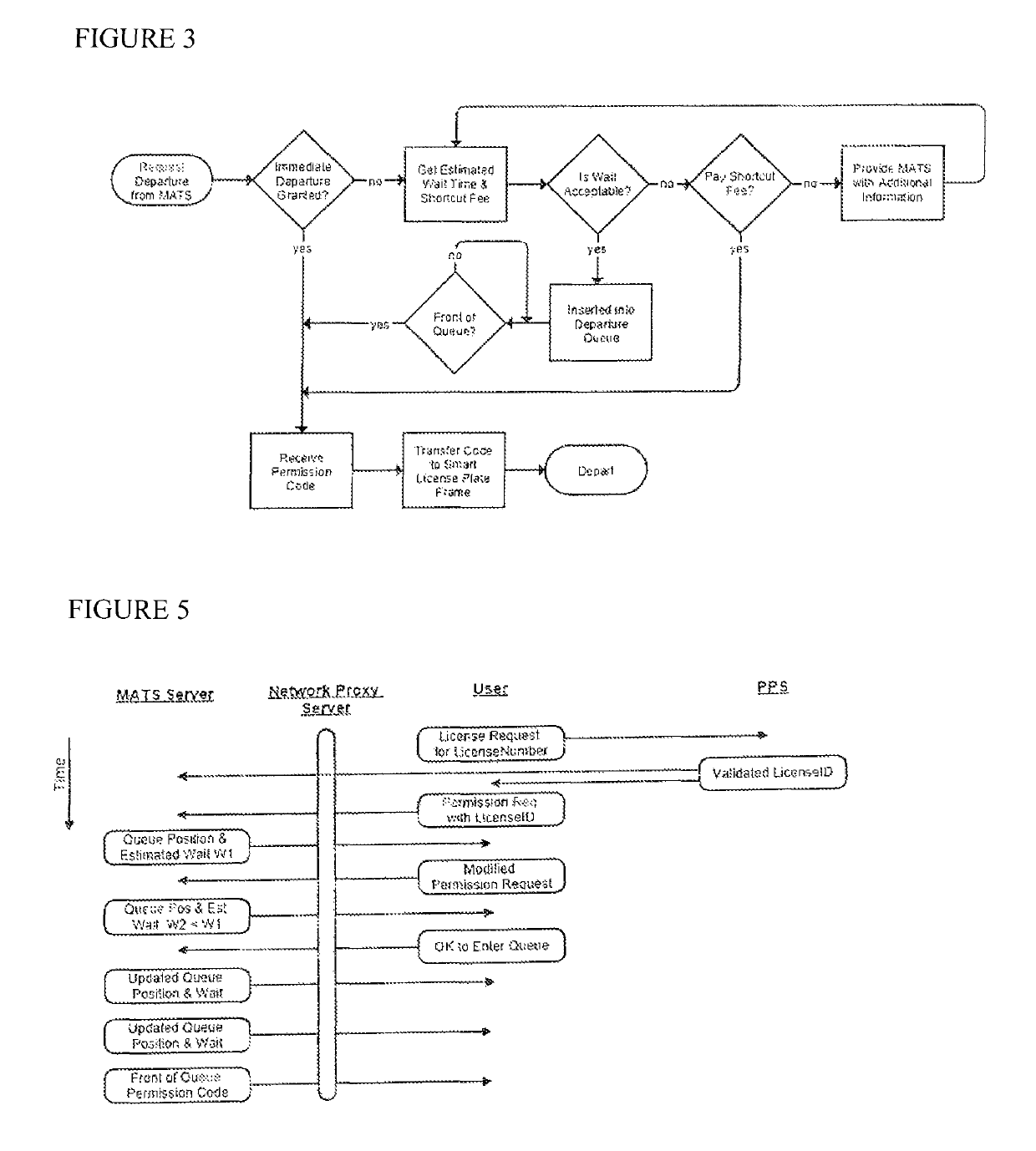Managed access system for traffic flow optimization
a traffic flow and access system technology, applied in the detection of traffic movement, instruments, computing, etc., can solve the problems of increasing increasing the total flow, and increasing the number of vehicles, so as to maximize (or improve) the road capacity, the effect of minimizing the speed of individual vehicles
- Summary
- Abstract
- Description
- Claims
- Application Information
AI Technical Summary
Benefits of technology
Problems solved by technology
Method used
Image
Examples
implementation example
[0040]In one possible embodiment, which will be subsequently referred to as MATS (Managed Access Traffic System), anyone wanting to drive somewhere would first request road access permission from central MATS servers via any one of many possible ways, including a phone call, text message, smartphone app, web page or dedicated electronic device. Additional information such as where they are and where they want to go may accompany the request. The MATS server would quickly respond, either granting permission to immediately leave, or giving a position in a virtual departure queue and perhaps a countdown timer showing approximately how much wait time is left. Once the front of the virtual queue is reached, the requesting driver is signaled, permission to depart is granted and their journey can begin. The basic user interaction can be as simple as that. It's also possible for part or all of the road access request / grant protocol be automatically performed by a device that knows when and ...
hardware example b
Low Cost Per Vehicle, Adding Privacy
[0093]This example, shown in FIG. 8, adds a toll transponder containing a Bluetooth wireless interface to communicate with a key fob. The key fob contains a long range texting radio, as in Example A (FIG. 7), but with a Bluetooth interface added for communication to the vehicle mounted toll transponder. This combination provides sufficient hardware and battery size in the transponder to use transmitted permission codes with a salted hash of the license number for enforcement identifiers, thus allowing increased privacy safeguards. The permission code could be received from the MATS server by the key fob while away from the vehicle. Just prior to departure, the key fob transfers the permission code and salt value via Bluetooth to the toll transponder, which can be mounted near the front windshield of the vehicle. Road mounted enforcement sensors would contain cameras with license number recognition and RFID reader to poll the permission codes and s...
example c
Hardware Example C
Medium Cost Per Vehicle, Adding Crowd-Based Enforcement
[0095]In this example, shown in FIG. 9, the key fob is a Bluetooth device that is simply a button and display peripheral for a smartphone application. The smartphone itself may already be owned by the driver, or a very low cost smartphone could be provided to support the MATS protocols. A device can be mounted to the front of the vehicle, for example, as a smart license plate frame (or as a smart license plate). The license plate frame is a convenient mounting point since it's generally standardized, and concealed routing of power to the device from under the hood is relatively straightforward. An alternative to routing power from under the hood would be to use a small wind turbine generator and battery to take advantage of the wind that is always available when the vehicle is moving. This smart plate frame would provide a control processor a GPS receiver, a radio frequency (RF) transceiver to transmit and rece...
PUM
 Login to View More
Login to View More Abstract
Description
Claims
Application Information
 Login to View More
Login to View More - R&D
- Intellectual Property
- Life Sciences
- Materials
- Tech Scout
- Unparalleled Data Quality
- Higher Quality Content
- 60% Fewer Hallucinations
Browse by: Latest US Patents, China's latest patents, Technical Efficacy Thesaurus, Application Domain, Technology Topic, Popular Technical Reports.
© 2025 PatSnap. All rights reserved.Legal|Privacy policy|Modern Slavery Act Transparency Statement|Sitemap|About US| Contact US: help@patsnap.com



